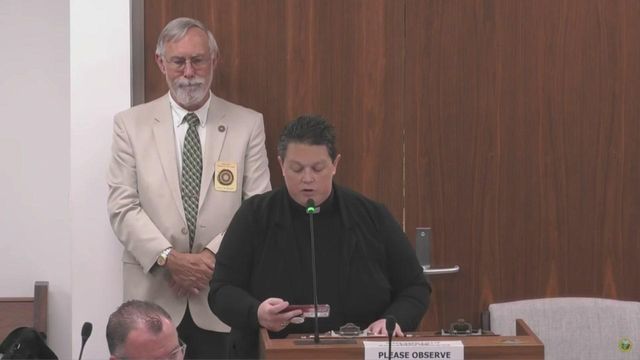Why all students should consider NC State Online

This article was written for our sponsor, NC State Online.
What does the typical college student look like? While many people may picture a young adult straight out of high school, that norm is increasingly changing. In fact, according to the National Center for Education Statistics, one in 10 college students in the United States is age 40 or older — and that number is only expected to keep growing.
Whether students are looking to change or further their careers and are balancing their education with other life circumstances, online programs can help students of all kinds earn their degrees.
At North Carolina State University, the university's online programs have been carefully tailored to provide a quality education, a supportive community and a rewarding experience.
"What's unique about N.C. State is that a lot of faculty teach face-to-face, and they also teach online. When that happens, they get to take the best of both worlds and put them towards whatever instance they need to. We're not just taking an in-person course and just throwing it online — we're really purposeful about how we think about the course translating to an online environment," said Kara Peters, director of graduate programs for Mechanical and Aerospace Engineering. "One of the best things about online classes is that they're really well planned out throughout a semester. If a student doesn't have a lot of time, they can budget their time really efficiently and effectively, because they can see what's laid out, what the expectations are and what it is that they need to do."
For Sherika Lee, 2021 graduate of the online Master of Education in Clinical Mental Health Counseling, that transparency was crucial in completing her degree. Since Lee was working full time and married with children, she didn't have the time to commute to campus for classes.
The online program allowed her the flexibility she needed to complete her master's degree.
Lee took evening online classes offered from 8 until 9:30 p.m.
"That was perfect because by the time I get off work to pick up my son — make dinner, help with homework, go through his bedtime routine — I had just enough time to log on. It really gave me that flexibility to still be a mom and a wife," said Lee. "Since my son was asleep by then, it also allowed me time after class was over to do my reading, meet with other students, do assignments and that sort of thing."
Even though most of her interactions with classmates were online, Lee was surprised at just how tight-knit of a community they were able to develop.
"We were extremely close. We had someone in their 50s, someone in their 60s, but also someone in the group who had just graduated with an undergraduate degree. We did have some projects that we had to meet in person to get it accomplished, and I think that helped with the cohesiveness — even though we were from different places, different ages, different races and all that. The program and just the stress of graduate school really brought us together," said Lee.

"Not only was it nice to have a listening ear, but since I had been out of school for so long, I had concerns about using technology. Some of the other students could help me out with Google presentations and things like that, talk me through questions, and they just welcomed me. It made the program easier."
While younger students helped Lee get a handle on some technical questions, the road goes both ways — and more experienced students can lend their knowledge to their peers when needed.
"For non-traditional students, the skills and the information they bring are so valuable. They bring this wealth of experience that our traditional students might not have, but they'll readily share," said Peters. "Not only that, but if they're in a master's program and trying to further their career, they might be with fellow students that are experiencing the same thing and be able to create that unique professional network. That becomes so valuable after graduation."
Since graduating, Lee credits her master's degree with opening new doors for her career and advancement.
From the relationships she cultivated with her peers to the support of her professors, the online master's program gave Lee the ability to reach new heights in her professional and personal life. From the beginning of the program until graduation, the flexibility of learning online allowed Lee to balance her work, life and education.
"I had a few deaths in my family, and my professors and classmates were there for me. They understood that we had personal lives outside of the classroom, and they would even send me messages and say: 'Hey, Sherika, if you really need to talk about something, I'm here for you.' That meant a lot," Lee said. "Especially during COVID, I'm an essential worker, so having to go in person there, and my internship was in person, it could get stressful. But they would check in with me, encourage me to practice self-care — it really was such a genuine connection."
This article was written for our sponsor, NC State Online.











